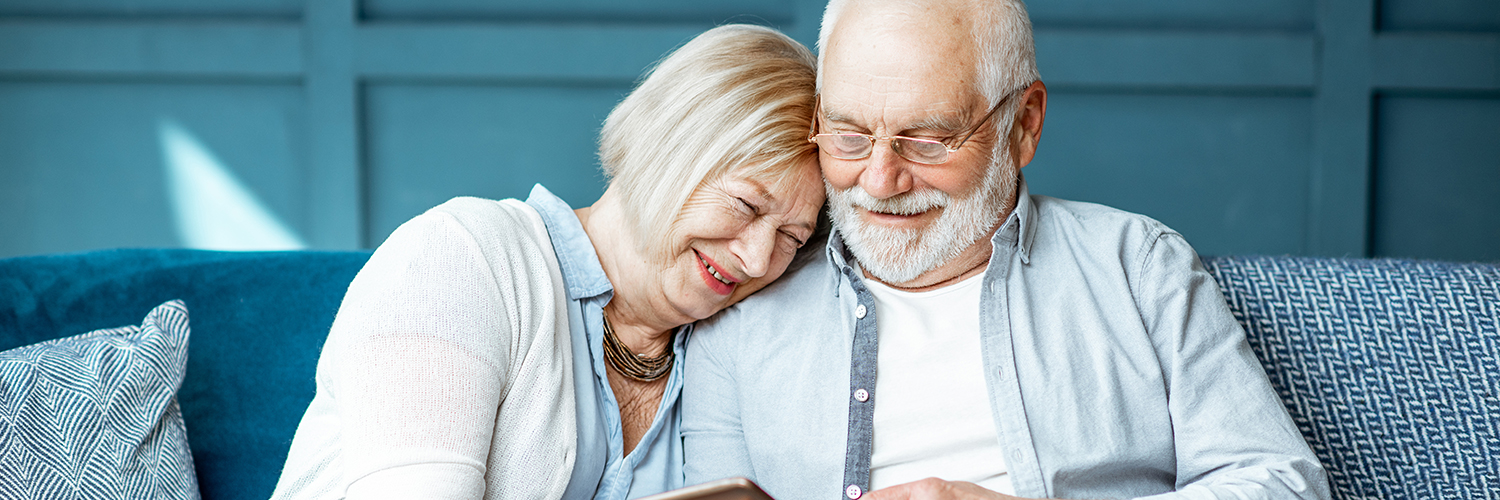CANCER TREATMENT AND YOUR HEART
Cardio-oncology is a term that describes the efforts to prevent or treat patients with cancer who face heart problems caused by cancer treatments. Although many cancer patients also have health conditions related to lung disease, infections or kidney disease, the rise of cardiac diseases in these patients has led to the growth of this new field. Cardio-oncology involves cancer doctors (oncologists), cardiologists and researchers.
Thanks to advances in treatment, the number of cancer survivors has never been greater and is expected to reach more than 20 million in the U.S. by 2026.
New therapies are helping patients live longer, but that means they also need ongoing cancer treatments that may damage their hearts. Many of these survivors are at risk for heart disease and now will live long enough after their cancer treatments to develop heart disease. In addition, some cancer medications may damage the heart.
New approaches to prevent or manage these side effects are needed, such as:
- Team-based care from cardiologists and oncologists.
- Improved methods developed by radiation oncologists to reduce the cardiac side effects of radiation therapy.
Drugs to treat cancer are being developed and released at faster rates. Some may damage the heart in new or unexpected ways. Whether due to research limitations or a process to fast-track drugs for life-threatening conditions, it is hard to detect all possible cardiac side effects before the drugs are released. Oncologists and cardiologists familiar with these real-world issues are the ones best suited to find these problems and protect patients.
Cardiologists and other specialists in imaging of the heart and blood vessels are developing techniques to catch damage to the heart from cancer treatments earlier.
For now, there is no certification of health professionals who have special skill in managing these cardio-oncology problems, but efforts are underway to create a certified training program for the field.
Cancer treatments save lives. But sometimes these same lifesaving treatments can damage your heart and might increase the risk of heart disease—or worsen any heart issues you might have already.
Certain cancer treatments can weaken the heart, disrupt the normal heart rhythm, or injure blood vessels or heart valves. They also may make risk factors for heart disease, such as high blood pressure or high cholesterol, more likely.
For some people, these heart issues may develop soon after starting cancer treatment. In other cases, they can go undetected for years—perhaps even decades—after being cancer-free. Many cancer survivors are living long enough to experience the effects on their heart health. That’s why it’s so important to think about your heart health before, during and after undergoing cancer therapy.
And while there is much excitement about newer cancer therapies, we don’t fully know how they might affect the heart or other organs.
The good news?
There is more awareness of the heart harms that may be triggered by many cancer therapies than ever before.
- Research is underway to find ways to lessen or prevent this heart damage
- Many heart doctors (called cardiologists) are now working alongside cancer doctors (called oncologists) to help keep patients’ hearts healthy during and after cancer treatments
- Many hospitals and cancer centers have opened cardio-oncology clinics that focus on integrating cardiovascular health as a part of cancer care
Ask your oncologist or primary care doctor whether you should see a cardiologist.
Cancer and Heart Health
Not everyone who undergoes cancer treatment will develop a heart problem. Still, if you or a loved one has cancer or a history or cancer, it’s important to be aware of the connection and to ask questions about your heart health, too. Here’s why.
People with cancer need lifesaving cancer treatments, some of which can damage the heart and blood vessels. It’s important to remember that these heart diseases can be managed with the help of the right health care team. Be sure to discuss specific cancer therapies or combinations of therapies with your care team so that you understand the potential side effects and work with your doctor to make informed decisions.
Many people already have risk factors for heart or blood vessel disease when they find out they have cancer. These can make treatment-related heart problems even more likely. Risk factors are conditions or behaviors that increase your chance of heart problems. For example, type 2 diabetes, high cholesterol, high blood pressure, smoking, or being overweight are considered risk factors for heart disease.
Heart issues may appear years—even decades—after cancer treatment ends. Some cancer therapies set the stage for heart disease to develop later in life. This is potentially because of earlier injury or scarring to the heart muscle, lining of the blood vessels or valves.
When undergoing cancer treatment, physical and emotional health can decline too. Coping with cancer can be overwhelming. Treatments, including surgery and cancer-fighting medicines, coupled with prolonged recovery times can mean lost muscle mass and decreased fitness. These effects can tax your body and heart. Ask what you can do to get back to some level of activity when you are ready. It may also help brighten your spirits.
Cancer itself can also make certain heart problems more likely. There is overlap between the risk factors for cancer and the risk factors for heart disease. For example, smoking is a risk factor for both diseases. Moreover, cancer can increase one’s risk of blood clots, which can lead to stroke and other complications
Researchers are also discovering many cancers and heart problems may be more connected than previously thought.
Whether your heart will be harmed depends on how healthy your heart is going into treatment, your age and which cancer therapies you receive. However, even people who are young and fit can have heart issues with some of the treatments that are used, so be sure to talk with your care team.
Your doctor may want to measure your heart function before you start cancer therapy. This is done with an echocardiogram, an imaging test that shows moving pictures of your heart and how it is working. Echocardiograms, other heart tests and bloodwork can also be used during and after treatment to check for early signs of heart failure, injury to the heart or both.
- What is my prognosis ?
- What are my treatment options?
- How will my life be different with cancer?
- How am I going to share this news with my loved ones?
Typically, concerns about the potential impact of cancer treatment on the heart are not among the first that come to mind. However, some patients with cancer may receive radiation therapy to the chest area, and these patients should be aware of the side effects that radiation therapy may cause to the heart. These potential adverse effects are known as radiation cardiotoxicity.
Radiation cardiotoxicity may affect the heart in various ways and at any time. Some conditions develop during or soon after treatment. Others become apparent years, or even decades, after treatment. The specific adverse effects depend on which area of the heart is affected, such as injury to the heart muscle, the heart lining, or blood vessels. Examples of the conditions that may develop include cardiomyopathy, coronary artery disease, and heart rhythm problems.
Radiation treatment can be delivered using several methods. The specifics of your treatment will influence your risk of developing radiation cardiotoxicity. In addition, many other factors may increase or decrease your risk, including age, additional cancer treatments, and other heart risk factors. Your oncologist (cancer doctor), radiation oncologist (radiation doctor), or cardiologist (heart doctor) will help you understand your unique risk from radiation.
Use this condition center to learn more about radiation cardiotoxicity, radiation techniques, and tips for healthy living after cancer treatment.
Treatment using drugs to kill cancer cells is called chemotherapy. More than 100 chemotherapy drugs are used in cancer treatments.
If you have cancer, your treatment will depend on the type of cancer you have and how far it has progressed. While your treatment will target the cancer cells, sometimes it also may cause heart problems. Although these heart side effects are rare, it’s important to understand and be aware of them.
Chemotherapy with fluoropyrimidine, which includes 5-fluorouracil (5FU) and capecitabine, may be used to treat solid tumors such as those involving your stomach and intestine (gastrointestinal), breast, or head and neck.
These medicines belong to a type of chemotherapy called antineoplastic or antimetabolite, which describes how they work on cancer cells. The drugs stop cancer cells from forming DNA—which contains genetic information—and growing.
This chemotherapy is often well tolerated, but you can have side effects depending on other medications you are taking. Your health history including age, risk factors for heart disease, and other chemotherapy treatments can also play a role in whether you develop complications.
The most common side effects with this chemotherapy are fatigue, nausea, diarrhea and lab abnormalities. It also can cause heart side effects including chest pain, spasm of the heart arteries or irregular heart rhythms, which can be felt as palpitations.
Use this condition center to learn more about damage to your heart, also called cardiotoxicity, from chemotherapy using 5-fluorouracil or capecitabine.
Finding out that you have breast cancer can be overwhelming. As a person newly diagnosed with the condition, you may have several questions. A common concern relates to cancer treatments and their side effects: How will they impact your life over the following days, months and years?
Breast cancer treatment depends on the type of breast cancer you have as well as the stage, or progression, of the disease. Often, breast cancer treatment will involve a combination of different therapies:
- Surgery
- Radiation therapy
- Chemotherapy
- Hormonal therapy
- Targeted therapies
About 20% of patients diagnosed with breast cancer will have a specific type of tumor called HER2-positive breast cancer (breast tumors with high levels of a protein called human epidermal growth factor 2, or HER2). Treatment of HER2-positive breast cancer involves medications that target HER2, also called HER2-targeted therapies.
Ask your provider about the HER2 status of your tumor and whether HER2-targeted therapy is an option for you. Use this condition center to learn more about targeted therapy for breast cancer and how it can affect your heart.
If you have prostate cancer, hormone therapy may be part of your treatment. Stopping some hormones can prevent the growth of cancer cells. Androgen deprivation therapy (ADT) includes surgery or medicines that aim to block the effects of male hormones such as testosterone—called androgens—that can cause cancer cells to grow and spread.
This therapy can make developing cardiovascular disease (heart and blood vessel problems) more likely. It also can make existing heart disease worse.
Use this resource to learn how hormone therapy can affect your heart, how to prevent heart disease, and questions to ask your doctor.
Possible Heart Effects
How does androgen deprivation therapy, or ADT, affect your heart?
Research has not shown that androgen deprivation therapy definitively causes cardiovascular disease. However, we do know that men who receive hormone therapy have a higher likelihood of developing conditions that increase their chance of cardiovascular disease.
For example, ADT has been shown to:
- Raise cholesterol levels
- Raise blood sugar levels
- Reduce the body’s ability to process sugar
- Increase body fat
- Reduce muscle mass
- Increase the thickness of the walls of blood vessels
Having higher levels of blood sugar and difficulty processing blood sugar can cause diabetes. If you have diabetes, you are more likely to develop heart disease or have a stroke.
In men with prostate cancer who already have a buildup of plaque—made up of cholesterol, fatty substances and calcium—in their arteries (atherosclerosis), ADT might increase the chance that patients may suffer from a heart attack.
ADT also can make you have low counts of red blood cells, a condition called anemia, which may stress your heart. If you have anemia, less oxygen goes to your heart muscle.
Reducing testosterone to very low levels also may increase the chance of blood clots forming in your blood vessels, known as deep venous thrombosis.
Symptoms of Heart Disease
Cardiovascular disease can cause many different symptoms including:
- Chest pain (including pressure, tightness, heaviness)
- Shortness of breath
- Tiredness
- Dizziness or lightheadedness
- Passing out
- Swelling in the legs
- Pain or cramping of the legs with walking
Cardiovascular disease can also result in a stroke or mini-stroke (also called transient ischemic attack). Symptoms include: trouble speaking, loss of vision, weakness or inability to move part of the body, or abnormal feeling (sensation) in part of the body.
Treatment With ADT
Although the link between ADT and cardiovascular disease has not been proved, if you are on ADT, it’s important to take steps to protect your heart. Adopt healthy habits and try to control conditions that are major risk factors for developing cardiovascular disease:
- Blood pressure
- Cholesterol
- Diabetes
- Weight
- Tobacco use
- Physical inactivity
If you already have cardiovascular disease and need androgen deprivation therapy, it is important to continue your treatment and, if needed, take medicines proven to help lower the chances the disease gets worse.
To survive and grow, cancer tumors depend on blood vessels supplying oxygen and nutrition. The growth of blood vessels, which is called angiogenesis, also helps cancer tumors spread to other areas of the body.
That is why cancer treatment often includes therapies to block the growth of blood vessels. These agents are also known as anti-angiogenic therapies.
Targeted therapies to block growth of new blood vessels include:
- Monoclonal antibodies (mAbs): These drugs attach and block those proteins that help blood vessels grow.
- Tyrosine kinase inhibitors (TKIs): These drugs block the action of enzymes known as tyrosine kinases, which help cells grow, divide, and send and receive signals.
Monoclonal antibodies and certain tyrosine kinase inhibitors that block the growth of blood vessels are called vascular endothelial growth factor inhibitors (VEGF inhibitors).
VEGF inhibitors block the signals causing abnormal growth of blood vessels and to prevent oxygen and nutrients from reaching the cancer cells. At the same time, it is important to know that VEGF inhibitors also can affect healthy cells.
Use this condition center to learn how anti-angiogenic therapies can affect your heart and what you can do to prevent developing heart disease.
You may have been given medicine or therapies that target your cancer cells, but did you know that some cancer treatments also can damage your heart and blood vessels? This is called cardiotoxicity. The most common forms of cardiotoxicity include:
- Cardiomyopathy and heart failure (heart muscle is damaged so that it can’t pump or receive blood normally)
- Coronary artery disease (major sources of blood supply to the heart are damaged)
Your risk of cardiotoxicity depends on the treatments you receive (type and dosage). It also depends on certain risk factors — some of which you can’t control, and some you can.
Risk factors that can’t be controlled include your sex, age, and family history. Some examples of controllable risk factors are inactivity, obesity, and smoking. You are more likely to develop cardiotoxicity after a cancer diagnosis if you:
- Are overweight
- Smoke
- Have diabetes, high blood pressure or high cholesterol
- Don’t exercise regularly
- Already have heart disease
The good news is that exercise can help control your risks. Use this condition center to learn about the benefits of exercise for patients with cancer, what questions you should ask your care team, and how to get started.
Electrocardiogram (ECG)
An electrocardiogram (ECG) is a picture of your heart’s electrical activity. Some cancer treatment makes certain measurements on an ECG change so you may have more than one ECG during treatment. An ECG can detect abnormal heart rhythms, called arrhythmias.
Studies to Measure Ejection Fraction
In many ways, your heart is a muscle like those in your arms or legs. The muscle of your heart is in the left ventricle. Every time your heart beats, it is expected that a certain amount of blood is pushed out of your left ventricle to the rest of your body with each heartbeat: This is known as your ejection fraction. In general, an ejection fraction of greater than or equal to about 55% is considered normal.
Some cancer treatments can lower your ejection fraction. If you have had chemotherapy or radiation in the area of the heart, you may receive several echocardiograms during treatment, for years after treatment or both. Studies for ejection fraction:
- Echocardiogram
- Multigated acquisition (MUGA) scan (involves your receiving a radioactive solution given through a vein using an intravenous (IV) line and then having an X-ray taken)
- Cardiac MRI
Cardiac Catheterization
During a cardiac catheterization, a thin tube or catheter is guided into an artery, usually in the wrist or leg, and up to the heart. The test goes into the body to directly evaluate the arteries of the heart.
If you’ve been diagnosed with cancer, there are several key questions about cancer treatment and your heart that you should ask your health care professional during your next visit. These questions will ensure that you and your doctor have talked about major risk factors so that you can stay as healthy as possible.
- Am I receiving any cancer treatment that could affect my heart either now or in the future?
- What are my risk factors for developing cardiac side effects from treatment?
- Is it safe for me to exercise during cancer treatment?
- How can I quit smoking?
- How much alcohol is safe for me to drink during or after cancer treatment?
- Do I need to see a cardiologist or cardio-oncologist during or after cancer treatment?
- Do you know of any cardio-oncologists in the area?
- If my cancer treatment could damage my heart, how will my heart be monitored during cancer treatment?
- I already have heart problems. Do I take all of my heart medication during cancer treatment?
- What symptoms should I be aware of that could be related to my heart?
In Dr Salahaddin Ubaid I had a medical genius who also contributed significantly to aiding me overcome all of the negative worries and emotions I was feeling. The care he provided to me, his attention to detail, his personal knowledge, expertise, experience and skills was outstanding.
His presence radiates a warmth, he instils confidence in all those around him, he sets an example for others to follow and is a role model for others to aspire to be like. He was kind, courteous, professional, understanding, caring and highly approachable and relatable as well as the medical guru we all benefit from and rely on to give us our lives back.
What I valued as much as his erudition was his people skills, he related to everyone as an individual, his understanding, communications, interactions and personable nature were exceptional. Dr Ubaid was quite simply staggering, he is somebody that has had a significant impact on me, not just for giving me my life back and for his medical genius but for being the person that he is.
A great team player, all of the nursing staff are very happy to work with Salahaddin as he is polite, efficient, and has a great aura of calmness and competence and appreciates the time to be light-hearted.
In life we all need role models, if I was in training to be a doctor you would certainly fit that role for me. I thank you so much for what you have done to allow me to continue with my fitness regime and wish you well in the life ahead of you.
Dr Ubaid works well with all the staff. His approach to his fellow workers is both patient and respectful. His easy going manner makes him very approachable to ask advice and he accommodates any delays graciously. I personally look forward to working with him.
Your kindness and good humour were very much appreciated and certainly put me at ease throughout the procedure, which on other ocassions has been quite daunting, your relaxed approach to my problem was very calm and professional.






